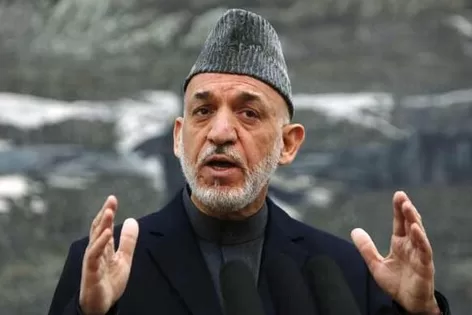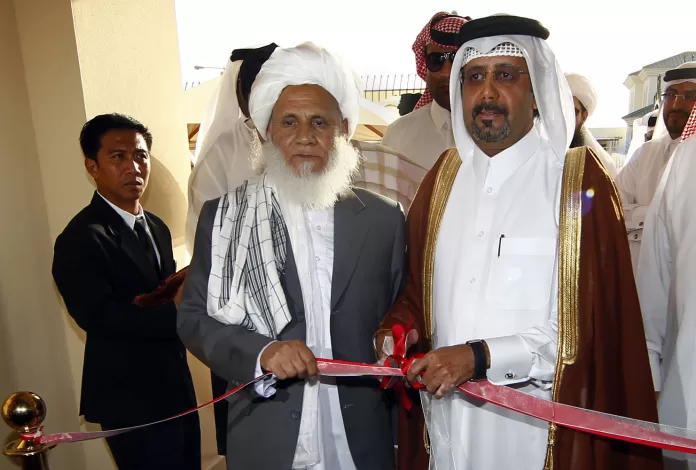As John Kerry circumvented Islamabad, Special Representative James Dobbins and Prime Minister David Cameron strived to wear his shoes. After a pro-India statement in New Delhi asking India to play a central role in Afghanistan, and with no tangible proposals with regard to Drone attacks, Kerry hardly had a chance of meaningful engagement with the new government of Pakistan. Skipping Pakistan from the regional tour of John Kerry has sent depressing signals. No one would buy the lame excuse of evolving situation in the Middle-East as the reason for dropping Pakistan from the itinerary.
What made US Secretary of State John Kerry say that India could play a “central role” in Afghanistan’s elections next year is not known. He went on to say that the world’s largest democracy could help the Afghan government improve its electoral system and create a credible frame-work to settle disputes. Mr. Kerry’s statement has been received in Islamabad with surprise and dismay. New Delhi and Washington have different strategies on establishing peace in Afghanistan. While the US has initiated talks with the Taliban, India has objected to it, saying that it could lead to conferring legitimacy to insurgent groups and send a wrong signal to various competing factions.
It is Pakistan that has a central role in peace and reconciliation in Afghanistan, and it is Islamabad which has facilitated opening of Taliban’s Doha office and establishment of contacts between the United States and the Afghan Taliban. Earlier too, on the demand of Afghan High Peace Council, Pakistan had released Afghan prisoners that were potentially helpful in furthering the process of national reconciliation.
India is not an immediate neighbour of Afghanistan, American insistence to make it in-charge of post-2014 Afghanistan is fraught with dangers. The real problem in Afghanistan is foreign interference and aggression and that is why Pakistan has all along been insisting that it would support an Afghan-owned and Afghan-led process of reconciliation and peace.
In the broader context, there’s neither a framework nor much incentive to scale down the conflict in Afghanistan. American politicians are striving to make Afghanistan look like an American victory, but that is simply not the case, running away is exactly what America is doing. Recently Fox News reported that right now, “violence is at levels matching the worst in 12 years.” The war in Afghanistan is far from over. Peace remains elusive. Abdur Rashid Dostum has reportedly been working overtime to bolster his militia in anticipation of renewed civil strife.
The Taliban opened their political office in Doha with an eye catching ceremony that included a ribbon cutting ceremony and playing of the Taliban anthem, while the Qatari deputy foreign minister was in attendance. The Taliban said they intended to use the site to meet with representatives of other countries and the United Nations. The language the Taliban used closely followed the American framework for peace talks. They indicated intent to distance themselves from Al Qaeda and other terrorist groups, saying that Taliban’s aims were only within Afghanistan and they did not support the use of Afghan soil to plot international attacks.
Coinciding with opening of the political office in Doha, the Taliban also sent a strong message through a deadly summer offensive in Kabul. In a dare-devil attack, Taliban stormed the Presidential Palace and a high profile CIA base in Kabul. This incident came a day after the American military formally handed over control of country wide security to Afghan forces. It was one of the boldest attacks since Karzai narrowly escaped assassination in April 2008 during a military parade. This show of strength in the most secure area of the Afghan capital doesn’t necessarily imply that the Taliban are averse to peace, it only shows that their will to fight is also intact.

The dormant US-Afghan Taliban dialogue showed signs of revival during last month, mostly due to the Pakistan’s effort. It is a last-minute effort to push for a political settlement before it’s too late. Inaugural ceremony in Doha brought forth the huge perceptional gaps amongst the vision of three parties to negotiations. The cardinal point is that the political façade of Emirate of Afghanistan, which had melted away after the fall of Taliban government in 2001, now stands revived and acknowledged. Now it is only a matter of time that it receives dejure international recognition. Despite denials, the Doha office is World’s one window contact point with the Government (in exile) of Islamic Emirate of Afghanistan. From their new office in Qatar, Taliban officials announced that they were ready to engage American and Afghan officials in peace talks, and they now sought “a political and peaceful solution.” Sooner or later the other two parties would reconcile to negotiate under the flag and emblem that Taliban had displayed during the ceremony.
Doha peace initiative is the latest move in America’s rapid retreat from the war in Afghanistan, a war the US no longer wants to be part of. These peace talks would only be the beginning of a “complex, long and messy” ordeal. America wants to just get out of Afghanistan. In his second inaugural address, President Obama stated, “A decade of war is now ending.” Later in May, he reiterated, “This war, like all wars, must end. That’s what history advises…” America has had enough of war. America’s will to fight is sapped. American talks with the Taliban show that even a superpower has failed to humble these elements with force.
President Karzai’s political power is posed to follow a fizzling curve as Afghanistan inches towards political transition. Soon the US-Islamic Emirate dialogue would become more robust and meaningful. Taliban’s self assertion, both militarily and politically, should be understood with all seriousness; attempts to marginalize predominant Pushtun population of Afghanistan would lead nowhere. No one should expect durable peace by handing over Afghanistan to minority ethnic groups.
Pakistan should strive for an all inclusive Afghan solution. It must reinforce its outreach to non-Pushtun political forces in Afghanistan, including all major 2014 presidential candidates. The goal should be to convince Afghanistan’s major stakeholders that Pakistan seeks peace and stability for its neighbour and could act as a bridge for an intra-Afghan dialogue. Pakistan indeed has an arduous task at hand in Afghanistan—to keep a balance between hope and despair.




